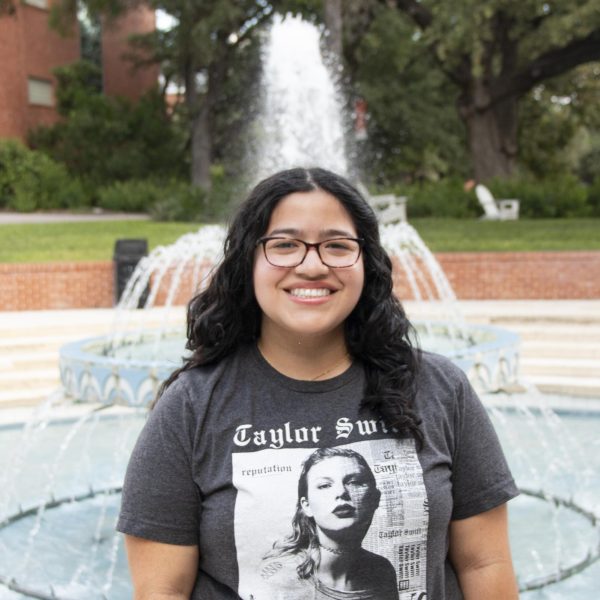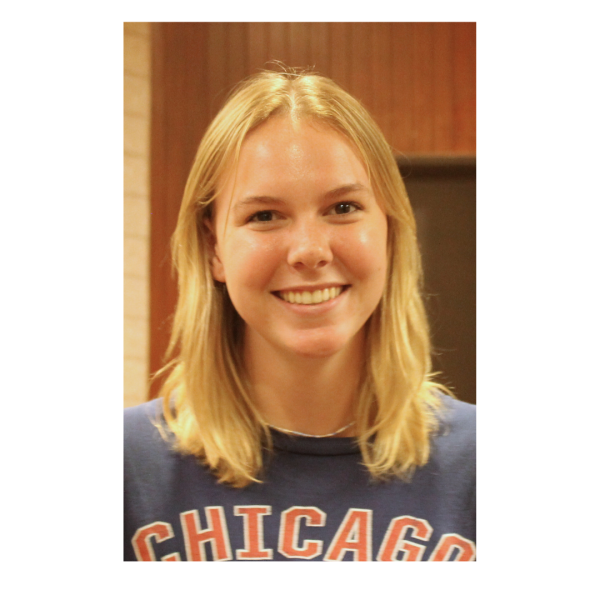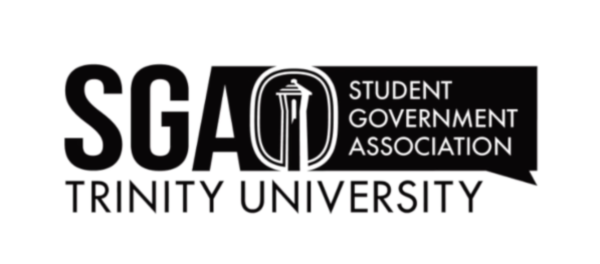Angela Miranda-Clark makes effort to educate about Title IX
Trinity’s Title IX coordinator works to make students feel comfortable reporting to her
Illustrated by lily zeng
Title IX is a federal law enacted in 1972 that prevents gender and sex-based discrimination at institutions that receive federal assistance. Title IX covers equality in sports, but it also encompasses sexual violence in schools, as well as protections based on sexual orientation and gender identity. Since Trinity receives some federal funding, the institution must comply with Title IX requirements, indicated by posters in the bathrooms, online training and compliance emails.
In addition to ensuring Trinity’s policies are adhering to federal laws, Angela Miranda-Clark, Trinity’s compliance officer and Title IX coordinator, is making efforts to extend awareness of her office beyond mandatory training.
“I’m responsible for ensuring that there is some sort of continuing education around those topics [sexual harassment, sexual misconduct and harassment and discrimination based on protected status],” Clark said.
In an effort to continue education, Clark wants the student body to feel comfortable seeking her help if they are ever in a situation that warrants her expertise. “I volunteer at a lot of student-facing events because I want to be around students when they’re not in crisis,” Clark said.
This year, Clark reached out to Greek life, inviting members of the organizations to ask her any questions they have and encourage ongoing discussions about Title IX in student organizations. Brayden Espinosa, a junior business management major and president of Phi Sigma Chi, has talked with Clark. According to Espinosa, he wanted to know more about Title IX and risk-related issues in general.
“I always try to get as much information as possible to give to my guys in order to make sure they are informed and can make the best decisions possible,” Espinosa said.
Wills Brown, the assistant director for Fraternity & Sorority Life (FSL) wants to ensure that FSL members are aware of Title IX and their responsibilities within it. To address that issue, Brown created a risk management curriculum that all incoming FSL members participate in when they join their organization. The curriculum includes discussions about sexual health and consent, healthy relationships and bystander intervention. There are also educational opportunities for FSL members pertaining to Title IX that occur each semester.
“Through ongoing educational workshops, it’s our goal that students better understand sexual health and consent, feel more equipped to prevent and report potential policy violations as they arise and have the necessary tools to support and look out for one another,” Brown said.
Although Clark cannot attest to the state of student comfort in regard to the Title IX office before she assumed her position, she has seen a shift in students being more willing to reach out. “I think people are becoming more comfortable filing reports, or, you know, letting somebody know if something happened,” Clark said.
Talking about Title IX among peers and within student organizations creates a culture that is open to addressing potentially uncomfortable topics. “It is important to me that even when I graduate that this fraternity has a culture that is open to discussion, especially about Title IX,” Espinosa said.
Clark is a class of 1989 Trinity alumna, and her experiences as a student aide her role on campus. She can visualize certain areas on campus when a student makes a report or complaint. “It’s valuable that I am so familiar with the campus. Most faculty and staff don’t go down to the residence halls at all,” Clark said.
In Clark’s role, she works on her own to handle all sorts of ongoing reports and formal complaints, assign training and continue the education for Title IX compliance within organizations like Greek life and athletics. As she continues to maximize her campus presence, the duties she has adds up. “As a one-person office, I’m kind of reaching capacity in terms of what I can do by myself,” Clark said.
For the future of her office, Clark is working on implementing peer educators. They would be a group of students who become trained in sexual violence prevention and education topics that serve as another resource for students to go to. “I know that the online training is boring and not the best method, but it’s all I can do as a one-person office. So, I’m hoping that with peer educators, we can have a farther reach,” Clark said.
According to Clark, most students aren’t mandatory reporters and a conversation with a fellow student in regard to sexual violence or discrimination could be more comfortable as opposed to approaching someone required to report those instances.
“I want no one’s time at Trinity to be derailed by an incident of sexual harassment, sexual assault or harassment or discrimination,” Clark said.

Hi! My name is Monica Martinez (she/her), and I’m a Junior human resource management and communication double major. I am a news reporter for the Trinitonian...

Hi guys! My name is Lily Zeng, and I am a sophomore from Memphis, TN majoring in Urban Studies with an interest in a Spanish major or minor. My favorite...










